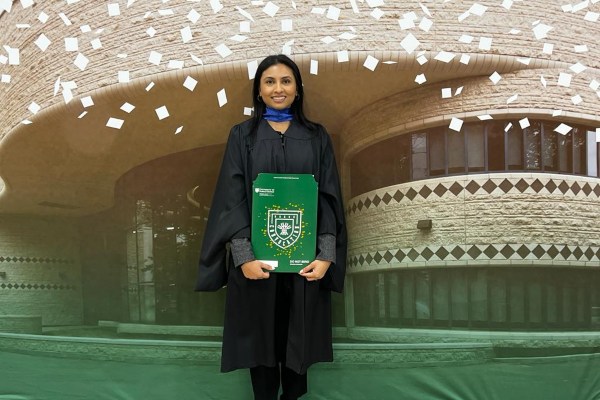
Integrating empathy into the building blocks of our communities
Spending nearly a decade working with police agencies in the Metro Vancouver region, including as a Crisis Intervention Case Worker that provides psychological first aid, practical assistance, and emotional support to victims and witnesses of crime, this experience provided Aliya Rahiman insights to how a victim or witness of crime may find the criminal justice system challenging to navigate and the types of assistance and resources that are available to lessen the impacts of trauma.
By Scott Larson for JSGSThis line of work showed Rahiman what more could be done by wanting to understand how programs and policies are developed and what criteria informed those decisions.
“Being a street level bureaucrat in some sense, I noticed certain gaps in how services were offered and delivered to victims and witnesses of crime,” she said, speaking from the unceded and traditional territories of the Musqueam, Squamish, and Tsleil-Waututh Nations. “And I found that some resources and channels can be quite rigid when in fact coping with trauma is not linear and not a one-size fits all approach. Programs and services need to offer better flexibility and a wider range of culturally appropriate options.”
Rahiman’s empathetic nature, determination to support others, solving complex problems, and desire to understand policymaking, is what led her to the Johnson Shoyama Graduate School of Public Policy’s (JSGS) Online Master of Public Administration program and eventually an unexpected career path. During her JSGS studies, Rahiman was inspired to pursue Indigenous Relations.
“The program equips students with knowledge and tools to apply in the policy space and beyond,” she said. “I really appreciated how JSGS provided an Indigenous focus and perspectives to the coursework. As well, understanding the importance of creating and driving policies and initiatives with Indigenous peoples is necessary to support meaningful reconciliation.”
That interest prompted and inspired a career change for Rahiman, who has been an Indigenous Relations Consultant for the past two years with TransLink in Metro Vancouver.
Rahiman leads engagement with local Indigenous Nations to deliver cultural recognition projects like integrating Indigenous art and signage throughout TransLink’s networks.
“TransLink is a tremendous platform for allowing customers who rely on transit every day, to reflect on the different cultures, history, and languages of Indigenous peoples” she says. Rahiman has been able to draw clear connections with her projects to what she learned at JSGS about the deep-rooted systemic issues that exist today because of assimilation policies that denied Indigenous communities from passing down cultural practices and languages.
“Reconciliation comes in many forms and takes time but most importantly requires us all to be respectful, empathetic, and to develop thoughtful actions together with guidance from UNDRIP (the United Nations Declaration on the Rights of Indigenous Peoples) and the Truth and Reconciliation (TRC) 94 Calls to Action,” Rahiman said.
Another part of Rahiman’s portfolio is assessing potential impacts of seasonal transit service changes. She says, “Indigenous communities do not have accessible and reliable transit options to reserves which is another one of the many outcomes of colonial actions and policies.” If a transit route will be less frequent along or nearby a reserve or Indigenous organization, it is important for Rahiman to assess any impacts of that change.
Rahiman transitioned to her new job and continued to work full-time while in the middle of her JSGS MPA program.
“When I was looking at programs, I really felt that JSGS understood the needs of working professionals. It was challenging at first and I had to remind myself how to be a student again. I also battled with imposter syndrome quite often.” Rahiman says, adding, “However, faculty and staff really lived up to understanding that work-life-school balance, and all the while during a pandemic as well. They were all so incredibly supportive and highly encouraging throughout.”
She says her MPA from JSGS has allowed her to pursue areas that she deeply cares about.
“I’m passionate about community, public safety and social development as well,” says Rahiman. “I feel I can make an impact for the betterment of others by using my skills and knowledge to lead change, which I think JSGS has given me the confidence to do.”

